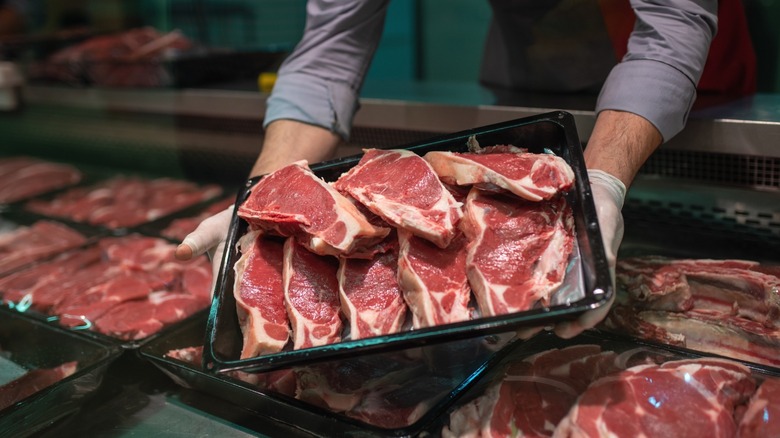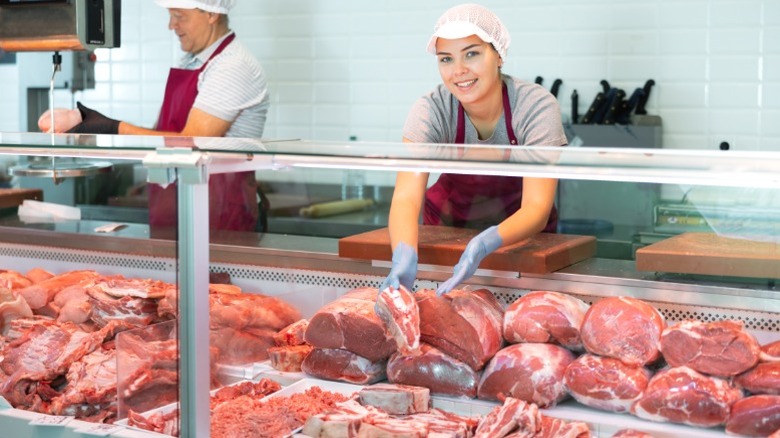The Best Way To Save Money At Your Local Butcher Shop
Some of you may think you don't have cause to visit a butcher while the supermarket still has a meat aisle, but there are a few reasons why you might want to stop by your local chop shop instead of a grocery store. Not only will the butcher have choicer cuts of meat than the average grocery store, but they will be vastly more knowledgeable about the meat they sell than whatever supermarket employee you manage to flag down with questions about roast chicken. But what if you're looking to cut spending while also looking for good quality? According to butcher Jamie Waldron, owner of J. Waldron Butchers, it never hurts to just ask.
"Don't be shy when talking with them about your needs and your interest in cutting costs," Waldron told The Takeout. "If your butcher is there to make a quick and high dollar sale, then they're not in it for the long run to establish a relationship for a lengthy customer." Sure, a butcher might get a little more money in the short term if they pressure you into buying some pricy cut of meat, but if you're unsatisfied (either with the cut of meat or the price tag), that's the last money they'll ever see from you. That means it's in the butcher's best interest to help you save money, and they have the expertise to do so. "Your butcher should be able to advise and recommend all options for different dishes and cooking applications," Waldron continued.
Are butchers more expensive than grocery stores?
This is all well and good, but is it really a good idea to shop at a butcher if you want to save money? If they're a big enough deal to have their own store, surely they're more expensive than your run-of-the-mill grocery store, right? Well, as Jamie Waldron told us, that may not necessarily be the case. "There's shops around us that are selling commodity meat for very fair prices, even better than the big grocers," he said. "There are also boutique shops, like mine, that focus on smaller farms and how the animals are raised. That's not cheap." (Here's how you can tell if your meat was ethically sourced.) It all depends on your budget, as well as what you, specifically, prioritize when it comes to your food.
If you do start to frequent a butcher, it would do you good to form a certain rapport with them. "I know my customers' kids names, what they ate the last time they were in, and where they go on holidays," Waldron said. "It's a conscious effort on our part to know and engage with them." If you're both engaged, you both benefit. The butcher gets your continued business, you get the choicest cut of lamb (remember these tips when buying), and you both enjoy the kind of human connection that's more valuable than ever these days.

